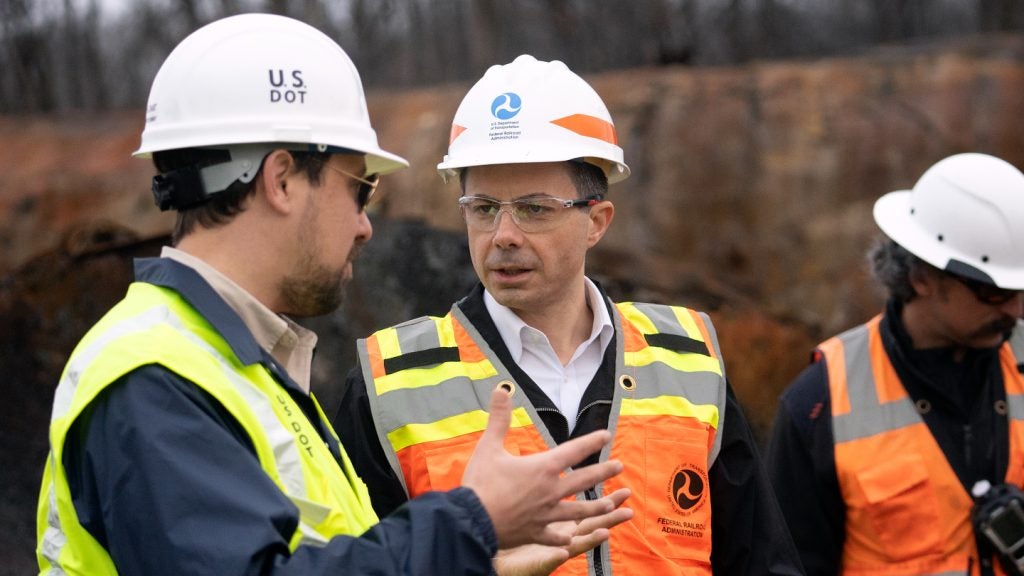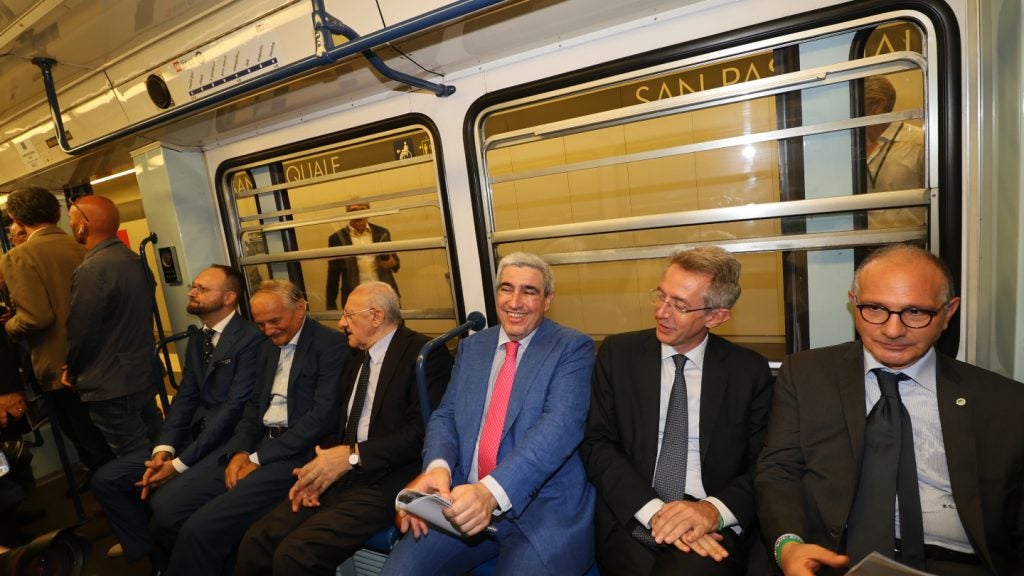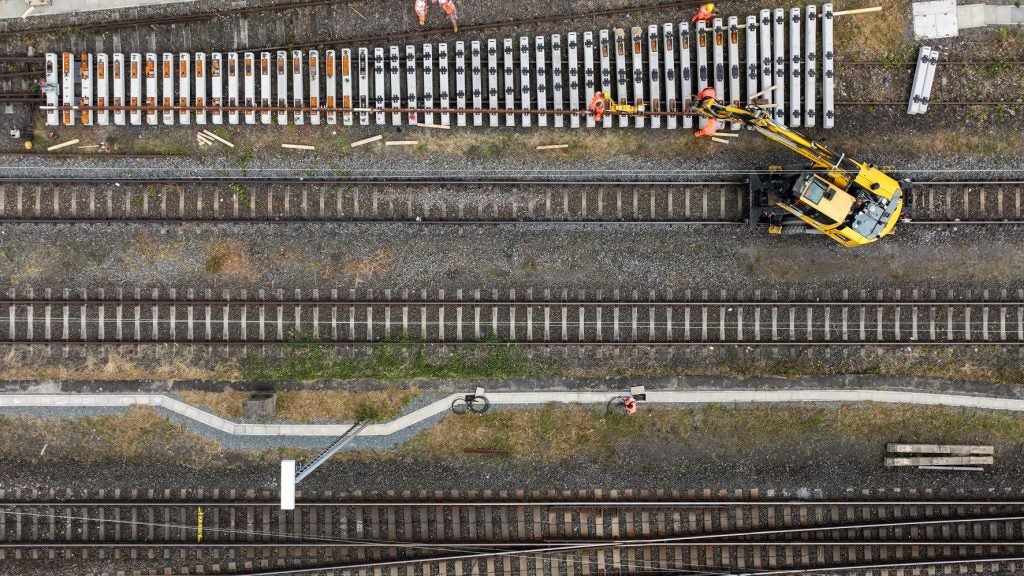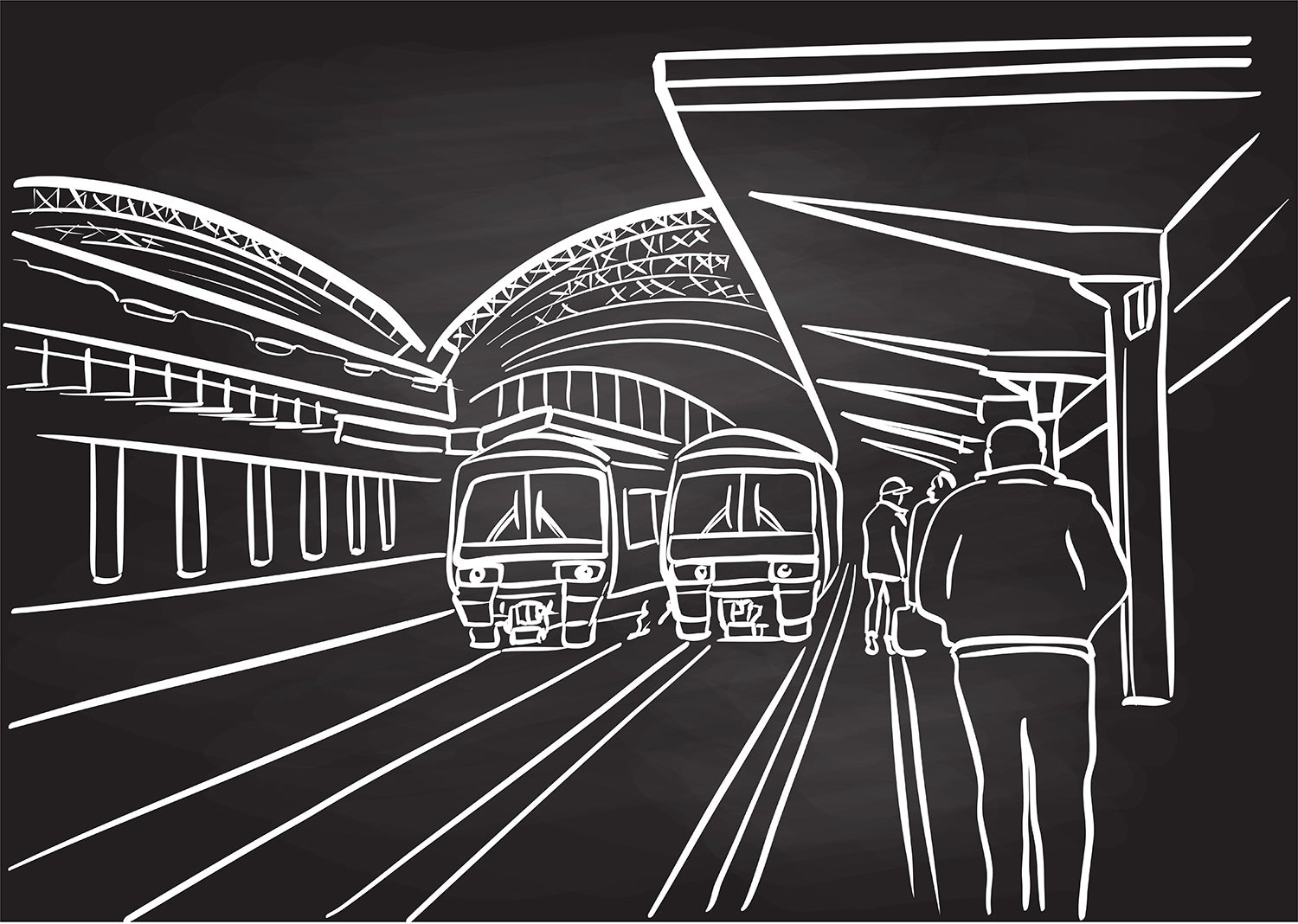
The UK Government is failing to meet its own targets to decarbonise rail in the country, according to a new report published by the Railway Industry Association (RIA).
The progress report, released on 8 June, audits the progress towards the targets set by the Department for Transport (DfT) in 2021 as part of its Transport Decarbonisation Plan (TDP).
The TDP set sights for a net-zero railway by 2050, by reducing diesel locomotives, expanding electrified lines and developing batter and hydrogen-power technology for rail.
The RIA report shows that of 45 commitments made across six different transport modes in the TDP, only 29 have been met in full. It also highlights that significantly less progress has been made towards decarbonising the rail sector when compared to other transport modes.
“The RIA’s analysis of the UK Government’s TDP reveals a concerning picture when it comes to rail decarbonisation. All the TDP commitments need to be achieved if the UK Government is to hit net-zero transport by 2050,” said RIA CEO Darren Caplan alongside the publication of the report.
“The fact that the rate of rail decarbonisation lags behind other methods of transport by some distance jeopardises the whole decarbonisation plan.”
How well do you really know your competitors?
Access the most comprehensive Company Profiles on the market, powered by GlobalData. Save hours of research. Gain competitive edge.

Thank you!
Your download email will arrive shortly
Not ready to buy yet? Download a free sample
We are confident about the unique quality of our Company Profiles. However, we want you to make the most beneficial decision for your business, so we offer a free sample that you can download by submitting the below form
By GlobalDataLack of progress is “deeply disappointing”
None of the eight commitments towards decarbonising rail made in the 2021 plan have been fully met, with only five partially met and the remaining three not met in any capacity, according to the analysis conducted by RIA.
The RIA briefing expresses that the lack of headway made in rail is “a serious concern” to the RIA and its members and “difficult to understand” when the railway industry has demonstratable credible technical solutions for decarbonisation.
Matt Edwards, the Green Party transport and healthy streets spokesperson, tells Railway Technology that the report’s findings are it is “deeply disappointing”.
“The fact that the UK Government has failed three out of its eight targets on rail and only partially met the remaining five shows that they just aren’t serious about tackling the issues on our railways,” Edwards said.
“The UK is seriously lagging behind other European countries in terms of electrifying our rail network and we need to see urgent action on this. The UK Government must now set out a plan of how it will ensure the rail industry can meet these targets – and on time.”
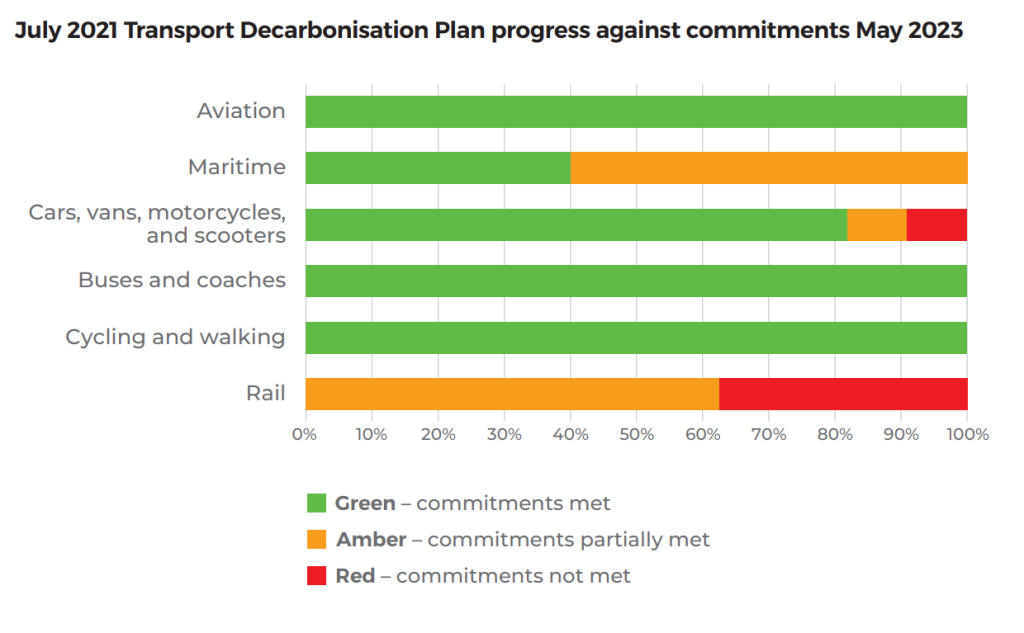
The RIA report calls for “cross-industry dialogue” in order to provide the industry with sufficient certainty to support investment decisions.
Likewise, Caplan further highlighted the importance of clear progress towards decarbonisation in order for adequate investment into the industry in his statement.
“This report will of course be of particular concern to the rail supply chain. The industry needs certainty and clarity on the commitments required to achieve net-zero, in order to invest in the green technologies required and cut carbon emissions; at present, there seems to be neither,” Caplan said.
“This lack of progress means rail passengers will also not be able to benefit from the more efficient and modernised rail services that come with decarbonisation.”
Electrification should be an “urgent priority”
In the report, the RIA urges the UK Government to “refocus on the commitments in the TDP” and outlines the core areas of the rail sector that require attention in order to meet the TDP targets.
Electrification is a clear front runner for the railway’s decarbonisation and the RIA calls to implement a rolling programme of cost-effective electrification.
According to the Office of Rail and Road (ORR), as of March 2023, 71% of the UK’s passenger rolling stock is electric but only seven of the 24 passenger operators had a fully electric fleet.
While in the main the railways in the south are already electrified, there is a need to prioritise electrification of lines in the north of the country, as the RIA highlighted in a report published last year.
Greenpeace UK’s senior climate campaigner Paul Morozzo said to Railway Technology: "Rapidly electrifying land transport and getting people out of cars and onto trains and buses, should be core to government action on climate change.
"Failure to deliver the basics such as rail electrification shows a lack of seriousness about the future of the rail industry and the environment. These delays also expose rail staff to dangerous levels of air pollution. For that reason alone, a rapid programme of electrification should be seen as an urgent priority."
Stop-start electrification "very bad practice"
The report highlights that the inconsistent rate of electrification projects in the UK has contributed to higher costs, as the rail sector is unable to retain the skills and expertise.
It also means that the rate of electrification is broadly stagnant. According to the ORR, only 2.2km of electrified track was added to the network between 2021 and 2022. In fact, since 2018, the proportion of electrified railways in the UK has remained relatively similar, at just shy of 40%.
The RIA points to the consistent workload of electrification in Germany, arguing that it has supported much lower unit costs. A rolling programme of electrification in the UK could reduce costs by up to 50%, according to the report.
"We want to see a rolling programme of electrification to decarbonise rail around the country while retaining and developing skills in the industry," Norman Baker, Director of External Affairs at Campaign for Better Transport and ex-Minister for Public Transport, tells Railway Technology.
"This stop-go approach to electrification is a very bad practice and can only push up costs per mile. In addition, it is creating an increasing mismatch between the rolling stock that is available and the lines it can run on. We have electric trains sitting in sidings with no wires to run under and the likelihood that clapped-out diesel trains will have to run well beyond their anticipated lifetime."
Modernising rolling stock
While electrification is a big part of the solution, there are parts of the UK rail network where it will not be cost-effective, meaning alternative solutions are needed.
The report argues that the UK Government needs to ramp up fleet orders of low-carbon rolling stock that uses new traction methods on less intensively-used parts of the network, including hydrogen and battery-powered trains.
The industry has demonstrated new technologies, with several low-carbon rolling stock options in development, perhaps most memorable is the Hydroflex hydrogen-powered train, which caught the attention of many at COP26 in Glasgow.
But as of yet, no significant fleet orders have been placed for these new technologies; whereas in Europe Alstom’s Coradia iLint Hydrogen train is already in use on the tracks in Sweden and Germany, amongst others
The RIA argues that a significant fleet order of new rolling stock would stimulate a new industrial sector, creating and retaining jobs and intellectual property in the UK whilst accelerating the decarbonisation of the network and supporting future exports.
DfT remains "committed" to its goals
When asked for a response to the fact that the UK Government has failed to meet its decarbonisation targets for rail, the DfT told Railway Technology that it remained "committed" to the delivery of a net-zero rail network by 2050, with an ambition to remove all diesel-only trains by 2040.
“The TDP is an ambitious and credible pathway to reducing transport emissions and we’re making strong progress on our commitments in rail," a DfT spokesperson said.
“We've electrified 800 miles (1288km) of rail track in the last seven years alone, with our £96bn Integrated Rail Plan promising much more and we’ve also invested in battery and hydrogen trials through our First of a Kind competition.”
While some headway has been made, the fact remains that much more will need to be done in order for the decarbonisation goals set out in the TDP to be achieved.
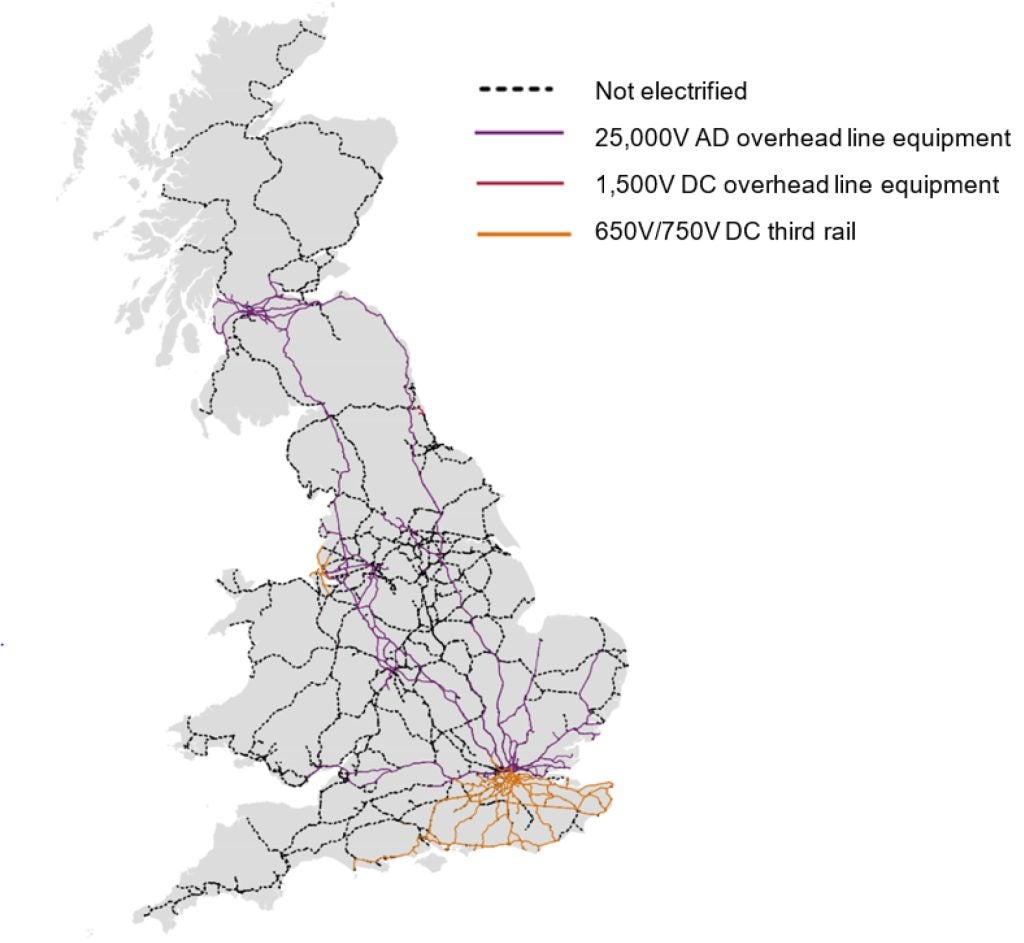
The 800 miles of railway that have been electrified in the last seven years that the DfT alludes to actually equates to roughly 4% of the total network in the UK. 16,888km of the track remains unelectrified. At a rate of seven years for 800 miles, it would take over 90 years to complete the whole network.
As the RIA report was published, Darren Caplan further said: “It’s not too late for the UK Government to put its foot on the pedal and deliver on rail decarbonisation.
"We need to see a rolling programme of electrification, investment in hydrogen and battery trains and steps to reduce carbon when building the railway network, to both deliver on the TDP and to enhance the experience for rail passengers."



